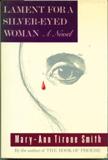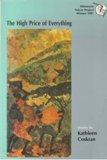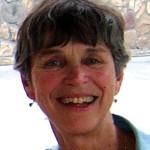Two RPCV Women Writers
“There isn’t really one good reason to publish this newsletter. Putting that aside, I’m going to do it anyway.”
I was wrong. There are many good reasons for writing about Peace Corps writers. If for no other reason than to announce to the world the books being published about the Peace Corps experience, and to network all of us together.
In that first issue I wrote the following essay about two of the best Peace Corps writers, two women. Here again (for the sake of history, and to bring new PCVs up to date, is that short essay.]
•
Two Women Writers
by
John Coyne (Ethiopia 1962–64)
THE NEXT TIME someone asks, “What was the Peace Corps like?” hand them Mary-Ann Tirone Smith’s (Cameroon 1965-67) Lament for a Silver-Eyed Woman, a novel set in her host country.
It is, to my knowledge, the only novel by an RPCV that captures the fun, hardship, and more often than not, the absurdity of being a Peace Corps Volunteer in the third world.
I suspect that most Volunteers who serve overseas have thought of turning their experience into a story or novel. Mary-Ann Tirone Smith was no exception — except that she was the exception because she actually sat down and did it, and with great skill. Scene after scene of life in training and overseas service ring true, and anyone who has been there will find themselves nodding in agreement.
 “While I was still in the Peace Corps I wrote a short story called, “Phoebe Gets Kidnapped,” Mary-Ann wrote me, “and that eventually became my first published novel, The Book of Phoebe. Sargent Shriver is a character, and the book contains allusions to members of the Fulani tribe that I met in the grasslands of West Cameroon. Then I wrote “Buea Mountain,” a thrilled that involved an ex-Nazi hiding on Mount Cameroon and a Peace Corps Volunteer who is a child of a Holocaust survivor. That novel was never published, but part of it became a section of Lament, my attempt at “the great Peace Corps novel.”
“While I was still in the Peace Corps I wrote a short story called, “Phoebe Gets Kidnapped,” Mary-Ann wrote me, “and that eventually became my first published novel, The Book of Phoebe. Sargent Shriver is a character, and the book contains allusions to members of the Fulani tribe that I met in the grasslands of West Cameroon. Then I wrote “Buea Mountain,” a thrilled that involved an ex-Nazi hiding on Mount Cameroon and a Peace Corps Volunteer who is a child of a Holocaust survivor. That novel was never published, but part of it became a section of Lament, my attempt at “the great Peace Corps novel.”
Most of us tend to take our Peace Corps experience too seriously, but here again Smith is an exception. In her wonderfully funny novel she spins her tale in ways that show the humor as well as the sadness of the experience, and all of it coming from what’s most basic to a writer, her own experience.
As she wrote me, “A writer who writes the way I do — not introspectively, and anything but minimalistically — tends to draw on elaborate life experiences. The Peace Corps was an elaborate life experience for me — unmatched, unsurpassed since, except for my two moments of giving birth, which were also pretty elaborate. The Peace Corps has affected my life from the day I got home.”
.
ANOTHER RPCV, Kathleen Johnson Coskran (Ethiopia 1965–67), is the author of The High Price of Everything, a collection of stories set in Africa and Georgia: it won the 1987 Minnesota New Voices Award.
 Coskran treats her subject matter — Africa — in ways totally different from Mary-Ann Tirone Smith. Where Smith will leave you laughing, Coskran will make you cry.
Coskran treats her subject matter — Africa — in ways totally different from Mary-Ann Tirone Smith. Where Smith will leave you laughing, Coskran will make you cry.
The High Price of Everything should be bought just for “Facing Mount Kenya,” a story of a white woman who meets a Kenyan at a university international fair, marries him, and then goes off to Africa where he is employed as the manager of a coffee cooperative. This story, and two others, are set in Ethiopia and East Africa, and while none are about the Peace Corps, the sensibility of a PCV comes through in the writing. And Kathleen Coskran’s writing is a thing of wonder.
 I first met this writer when she and her future husband, Chuck Coskran, were Volunteers in Ethiopia. Kathleen then had the reputation of being one of the prettiest PCVs to serve in Ethiopia and now she, and novelist Maria Thomas (Ethiopia 1971-73), have earned the reputation as the best RPCV writers to come out of the old Empire.
I first met this writer when she and her future husband, Chuck Coskran, were Volunteers in Ethiopia. Kathleen then had the reputation of being one of the prettiest PCVs to serve in Ethiopia and now she, and novelist Maria Thomas (Ethiopia 1971-73), have earned the reputation as the best RPCV writers to come out of the old Empire.
This paragraph in “Facing Mount Kenya,” describing the death of a child from cerebral malaria, sums up Coskran’s powerful use of language, her wonderful eye for detail, and more importantly, the skillful way in which she understates a dramatic and emotional moment.
Wanjiro died two days later, in my lap, on the veranda. It was the day the clouds rose above the mountain. We were sitting there watching her and watching the clouds lift off the high peaks, the white spot of snow brilliant in the tropical sun and the morning mist blowing away and the clear light shining on us all. I heard the sound of a weaver bird taking a seed, then a sigh from Wanjiro. Her eyelids fluttered once, then her mouth sagged and I saw her two little teeth.
I pressed her to my breast and wept.
Coskran went back to Africa (this was in 1989), to Ethiopia and Kenya, doing research on her first novel. She wrote me before leaving, asking if I had read Nuruddin Farah, the Somali novelist, who recently published May.
“He (Nuruddin) makes me hesitant to continue writing about Africa,” her letter said. “I have to keep reminding myself that mine is only a ferenji view and who knows what distortions I bring to it.”
.
Ferenji or not, Kathleen Coskran and Mary-Ann Tirone Smith have lived the experience of life in the third world. It is an experience that all of us can share and appreciate, and I’m grateful that they have used their skills to describe a world and a way of life none of us could possible forget.
delightful retrospective! what would we have done without Peace Corps Writers!? Since 1962, when Coyne was 41 and I was in grade school….
Well done, John and Marian! And profound thanks!
ken
Marian and John seeded the idea of Peace Corps Experience Literature long before it was popular and then spent decades nurturing it with loving attention. This is a more difficult task than most realize. They certainly helped me, such an old crab that my wife considers them publishing saints. I agree. Thank you Marian and John.
Very touched by all of this. The world would be a less endowed place without Peace Corps Writers and the doors it has opened for us Peace Corps types to publish. All of us are in debt to Marian and John for this great gift.
This message brought tears to my eyes. Following John and Marian’s work has, through the years, made me feel that I will always be part of Peace Corps. Reading and reviewing its literature transcends all the small problems of the agency. Thank you John and Marian.
The Peace Corps Writers help keep the founding spirit of the Agency alive. Thank you John and Marian.